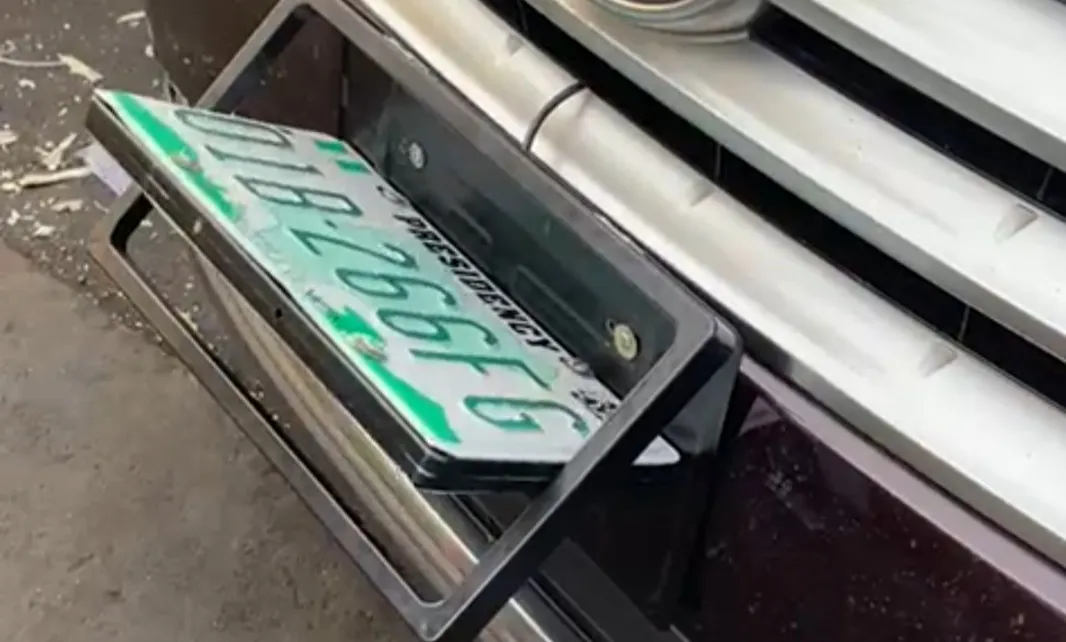By Mashal Jonas Agwu,Mashal Jonas Agwu, Mni,MNI
Copyright leadership

The road is central in combating crime. They are the main access criminals use for kidnapping, terrorism, movement of stolen goods, or drugs, among other criminal activities. This is why all vehicles are required by law to carry number plates as key identifiers.
Best practice apparatus, such as automatic number plate recognition and road cameras, which are absent on most of our roads, hinders tracking suspects, stolen vehicles, and movements. The road is, therefore, not just a path of travel but a frontline in the battle for safety and security against all crimes.
I once wrote on number plates. One was titled ‘Rotational Number Plates’. The second was captioned ‘The Criminality of Number Plates’, while the last was ‘Still on Number Plates’. I am compelled today to shed light on this safety and security issue that should concern not just agencies such as the Federal Road Safety Corps and the Nigerian Police but other agencies, as well as the average Nigerian.
In the last few weeks, videos of rotational number plates have been circulated on WhatsApp platforms that I belong to, with specific appeals to security agencies to step up their efforts. I won’t deny that there are ongoing interventions to arrest the drift, but more is required from the agencies that are no doubt handicapped by the absence of the needed infrastructure.
This is why governments at all levels, whose responsibility is the protection of citizens, need to put in place the needed infrastructure to ease enforcement. The needed infrastructure, such as that which currently exists in Lagos State, will shift focus from analogue enforcement to fully driven technology enforcement. Apart from deterring culprits, this upgrade will drive down avoidable road traffic crashes even among chronic deviants as well as the high and mighty.
For the record, number plate infraction is illegal and criminal. According to my legal tutor, obscuring a number plate or driving a vehicle without one amounts to perverting justice. When I wrote on this same topic, I said to you that a number plate identifies a vehicle and its owner. Whether in developed countries or in climes such as Nigeria, the number plates on each vehicle must show the correct registration number.
It is, therefore, illegal for you to rearrange letters or numbers or alter them, making them hard to read. Such an act, which is deemed criminal, could result in a fine of up to £1,000 in the case of the United Kingdom and will cause your vehicle to fail the Ministry of Transport (MOT) test. In Nigeria, number plate violation is just N3,000, which is why I hope a review will increase the cost to deter defaulters.
While the Corps daily battles known number plate infractions, there is a new entrant to number plate violations. I am talking about the rotational number plate, which the Corps says is also illegal. When I checked to see if rotational number plates were legal in any part of the world, the result was negative. My findings show that using a rotating plate or “stealth” frame to obscure a number plate to avoid fines or parking fees is “tantamount to perverting the course of justice,” according to a lawyer.
When sought for clarification, the Corps said that the FRSC does not produce rotational number plates. The Agency further noted that the number plates are unauthorized and only intended for sinister motives. The FRSC cited the trending rotational number plate KUJ-304BV, which, when automatically flipped, carries a number tagged “presidency” with the following details: 01B-266FG.FRSC. The Corps further clarified that FRSC does not produce a number plate with such double features, stressing that only one number can be assigned to one vehicle and its owner at the same time.
Rotational number plates are not the only illegal act committed by motorists. Daily, I receive calls, text messages, and emails from motorists seeking clarification on the position of the law concerning the indiscriminate removal of vehicle number plates by law enforcement agents. Some of these callers often express disgust over these actions, described by some as annoying. I recall vividly the most recent call from an old classmate and friend who could not hold back his frustration while narrating his frustrating experience to me.
According to Femi Richards (not his real name), he said he was driving along the Abuja-Lokoja corridor when he was pulled over by a law enforcement operative for certain offenses. After a series of questions on certain infractions, one of the operatives walked away, only to appear with a screwdriver, which he used to unscrew the vehicle number plates, and then asked him to report to the office the next day.
A second caller who claimed to reside in the Federal Capital Territory was not as lucky as Femi, as his rear vehicle number plate was forcefully removed with bare hands. This is criminal and not backed by any law in the land. It is similar to stripping or tearing off a female’s dress and disregarding her right to her privacy, all in the name of enforcing the law.
What does the law say? For emphasis and clarity, it is illegal for any law enforcement operative to engage in the removal or confiscation of number plates from a vehicle. If you are in doubt, please read the clarification by the Federal Road Safety Corps, and I hope that road users will take, according to my learned friend, judicial notice of the clarification. For appropriate guidance, the following provisions of the law are instructive matters are instructive:
Section 10(4)(h) of the FRSC (Establishment) Act, 2007 states: it’s an offense to be on the road without a valid vehicle license or identification mark being displayed. Similarly, Section 10(4)(s) of the Act makes failure to display number plates on vehicles an offense.
The National Road Traffic Regulations (NRTR) 2012 also provide as follows: Section 36 (NRTR) 2012 makes it mandatory for all private and commercial vehicles to have number plates which shall be fixed on them in a manner to be easily detachable.
Failure to comply amounts to a contravention of the law.



